By Nabilah Hassan Umar and Olorunnisola Abe
Kaduna State Government has not only built infrastructure in the last seven years but has also embarked on Human Capital Development as well. What particular policies has it enacted to improve Human Capital Development Index in the state?
Truly, the Human Capital Index of Nigeria as a whole is very poor. It is 0.35/1 as at 2019 and 0.36 in 2020, which simply means that a child a child born today by the time he or she turns 18, she would have only been able to develop 36% of percent of the it’s true potential, if the present situation continues. For us to improve that index, we need to keep investing in education, healthcare, social protection and skills development. To that extent, the state government found it necessary to act and come up with new strategies. In 2019, precisely in August, the state government established the Human Capital Development Council for the sole purpose of improving the Human Capital Indices of the State This will also contribute to the national HCD index. The council has been structured into sub-committees– or core strategic areas. The subcommittees cover key thematic areas like health and nutrition, education, skills, and talents development and social development.
Further to that, if you observe since 2016, the state government has been progressively been allocating above 25 percent of its budget to education and over 15 percent to the health sector. In the 2023 budget proposal 29% has been allocated to the education sector, 16.4% to health and 3% on social investment. These are all efforts to improve our Human Capital Indices and our collective livelihood.
At the Human Capital Development Council, we deliberate on all issues, policies and programs that would help improve our Human Capital Indicators.
People often mistaken human capital with human resource. If you are talking from an organisational perspective, they are used interchangeably with very little difference. But when you are talking from the perspective of a nation or a subnational, the difference is much wider. So, the State is focusing on the entire population when we talk of human capital, not just the state employees. The most important thing is to develop our people particularly the youth so they can effectively participate and contribute in the socioeconomic development of our dear State.
At the just concluded KADINVEST 7.0, the state government disclosed that it has attracted $4.4 billion worth of investments. How have these businesses boosted Human Capital Index of Kaduna state? Is there a relationship between high Human Capital Index with volume and quality of investments?
The investors will contribute to improving the Human Capital Index because they will provide training employment. Before they employ, they will train our youths and arm them with competencies the require to run their businesses. As I said, one of the thematic areas of the Human Capital Development Council is skills and talent development, which focus on skill development initiatives in the State. So, to that extent, these businesses will be helping to generate employment, train our youths, and provide some social security.
One of the requirements for the establishing a business is also the availability of labour to run the business. So, if trained and skilled labour is available in the state to fill in any position, this will save the business some costs – the cost of bringing in expatriates from other places, high cost of living and insurances, housing, and what have you. If we have our residents that can fill in on all the positions on offer by investmentors more businesses will be encouraged to come and establish in the state.
How do these thematic areas that you earlier spoke about, improve the overall ranking of the Human Development Indices of Kaduna state?
As I said, we have health and nutrition for example. Under this, we look at the critical health and nutrition issues that may be of challenge towards promoting human capital. Particularly nutrition, we have high rate of stunting – under five stunting, which is a very big challenge. If a child is stunted, his ability to learn will be impaired. So, that’s why we are promoting and advocating to the populace on the importance of nutrition, starting with exclusive breastfeeding and subsequently, giving the child all the necessary nutrients that the child requires up to the first 1,000 days. This is critical. The health and nutrition thematic area also helps to reduce maternal mortality, increased access to primary healthcare services, health insurance coverage, which we want many citizens to have, so as to reduce out-of-pocket expenses when people go to healthcare centres.
In the education sector, we look at the key indicators that will help us improve our performances. Members meet fortnightly and report to the main council. Issues are discussed and resolutions are taken at the council and if need be, we escalate some of the issues to the State Executive Council.
Can private business owners partner with Human Capital Development Council in any of the thematic areas?
Yes, we have partnered with so many. There are so many private sector organisations under Corporate Social Responsibilities that have built schools and intervened in so many ways. As you know, we have partnered and are still partnering with Bill and Melinda Gates Foundation, Dangote Foundation, AMA Foundation, UNICEF, the World Bank and a host of them to intervene in various sectors. We have our donor map which captures all partners sector by sector. All donor partnership are coordinated by the Planning and Budgeting Commission, if you go there, you would see the list of all of them and the sectors they are partnering with the state on. So, we have quite a number of partners, both local and international that are supporting us in our efforts to improve the Human Capital index and improve the standard of living of our populace.
Has the Human Capital Development Council devised a mechanism to measure the impact of the thematic areas on the lives of the people of Kaduna state?
Yes, we have a monitoring and evaluation team within the Council that monitors the implementation of councils decisions and their impacts. But you see, Human Capital Development is a slow process. It’s not like infrastructure that you’ll build and see tomorrow, it takes time to see the impact sometimes, it takes 10 or even more years. It’s like what I said earlier about a child born today, by the time the child turns 18, if you start nurturing a child that is born today, giving him all the necessary care, education, and training, you may not be able to see the result until after 18. That is when you’ll see it practically. You’ll see the outcome of your efforts. So, that’s how Human Capital is, but there are some that you will see the results earlier like building schools and hospitals but in general, it is not something that you can see the in a very short term that is why the State has been scaling up its investment in Human Capital year in year out for a better future for all.
In developing human capital, we are taking the “all of society and government” approach. So, we need to engage widely with all stakeholders -parents, community leaders, religious leaders, captains of industries and so on and so forth. That is why we supported the initiative called Human CABAS which means Human Capital Development through Capacity Building, Advocacy and Sensitization. We launched it in Kauru local government area. It is basically to engage the communities and show them the importance of human capital to community development and how they can help themselves and the state towards achieving its objectives. We have this kind of collaboration. There is also the Buy and Sell and Talent Show that is coming up on the 3rd of November. It’s an attempt to showcase the small businesses that we have in the state and also incorporate a talent show with a message to the youths on importance of education, dignity of labour and to stay off drugs, positive thinking and against all social vices that are prevalent today in our communities.
It’s a fair that has multiple objectives. Bringing the youths together and showing them that they can also do the business that other people are doing. The show is also aimed at telling the youths that government is with them to support them, and that drug abuse and other social vices are dangerous to their social development. It’s a way of sending some of the messages of Human Capital Development Council, in a subtle and entertaining atmosphere, so that it may connect better to the youths. This is besides promoting small businesses that are into buying and selling.
HUMAN CAPITAL Facts
-In August 2019, Kaduna State Government established five policy councils and the Human Capital Development Council was one of them;
-The aim of the council is to improve the Human Capital Indices of the citizens of Kaduna state and it was subdivided into strategic areas, including health and nutrition, education, skills, and talents development as well as social development.
-The Human Capital Development Council has been working with both government agencies and the private sector to impart skills and knowledge on the citizens as well as to enhance their standard of living;
-It has been engaging stakeholders like parents, community leaders, religious leaders, captains of industries, on the importance of Human Capital Development;
-It launched a programme called Human CABAS, which means Human Capital Development through Capacity Building, Advocacy and Sensistization, at Kauru local government area.
-Basically, Human CABAS engages communities on how they can help themselves and the state towards achieving Human Capital Development.
Source: Leadership Nigeria
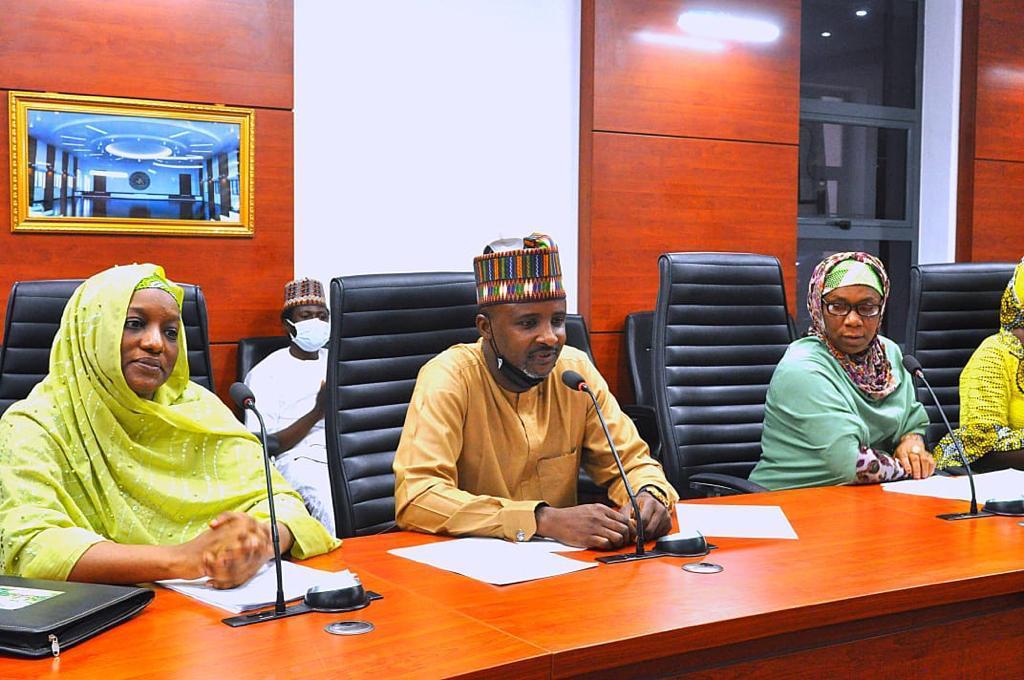
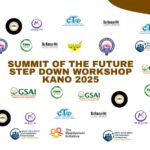
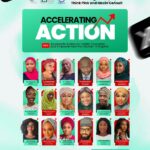
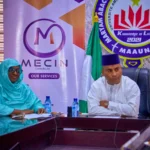
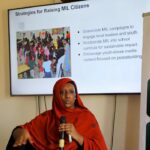
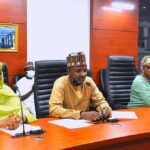
Leave a Reply